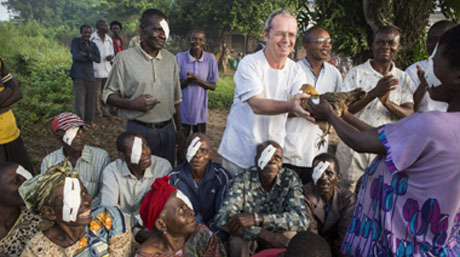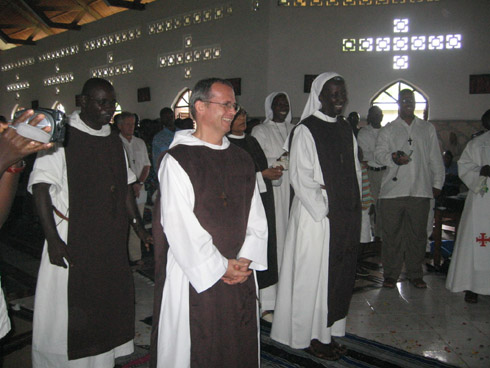Richard Hardi was born in Budapest in 1958, the fourth child in a family of six. He attended school in his native city until the age of 15 when his father took a job in Algeria, and he moved there with his parents and three siblings. The five years he spent in the town of Constantine left a deep impression on him. It was during that time that his attraction to Africa developed. On his return to Hungary he embarked on his medical studies, which he completed ten years later at the hospital in Tatabánya, specializing in ophthalmology. After his final exam, he joined the Community of the Beatitudes, which had long been seeking an ophthalmologist for the Kabinda hospital in the then Zaire.
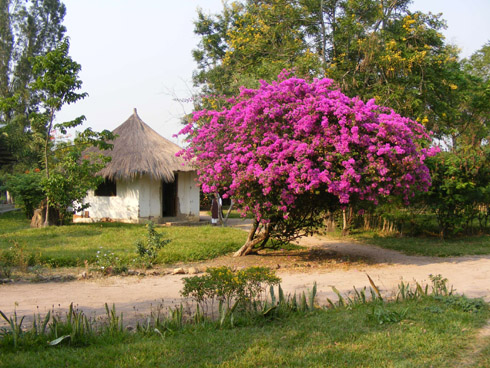
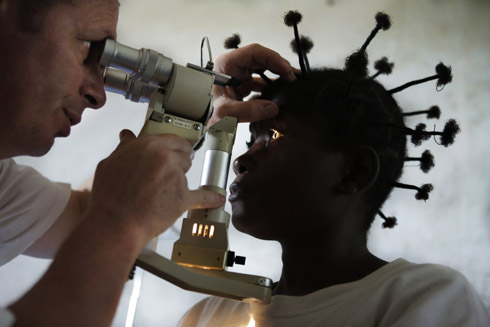
On his arrival in Kabinda in 1995, Brother Richard was confronted with the appalling conditions of the poorly equipped hospital and the lack of doctors.
By then water was already available, but the electricity supply worked only for two hours a day (with a generator). All sterilizations, operations (provided that a surgeon was at all available) and X-rays had to be scheduled for those two hours. If anything ran out or stopped working and couldn't be fixed locally, one had to go as far as Mbuji-Mayi or Kinshasa to get replacements. The former can only be reached on a dirt road by 4WD off-road vehicles, and the trip would take at best 10-12 hours; to get to Kinshasa, one has to take a plane from Mbuji-Mayi. After years of hard work, Brother Richard managed to solve the problem of the hospital's power supply, which operates with solar panels twenty-four hours a day. Incidentally, to this day the town of Kabinda does not have any electricity and water distribution network.
War broke out in 1996 between rebel troops led by Laurent Désiré Kabila and the ruling Zairean President Mobutu's regime. (Kabila owned a goldmine at Mobaba in the region of Lake Tanganyika, which his own militia mined. His mercenaries were well-armed and financed from the revenues of the mine.) At the news of the war, the majority of foreigners fled from Zaire. The diplomatic representations requested the Community as well urgently to leave Zaire. During this time Brother Richard was the Community's' pastor, thus the burden of decision weighed on his shoulders. They unanimously chose to remain, as they knew that the population would have even greater need for the hospital than in peacetime. "Prayer became our weapon", wrote Brother Richard in his letter. "We put the Blessed Sacrament on view in the chapel and took turns praying day and night. It happened that I interrupted my consultations for an hour or so to go and pray. The patients waited uncomplainingly, not one of them grumbled. We also introduced the continual praying of the rosary and the locals came and joined us in our prayers. The front stopped at Kabinda, where it remained for 18 months. Enemy tanks were posted on the surrounding hills, but Kabinda remained unharmed. Our presence at the time was considered by the inhabitants as an unequivocal testimony. They recall it to this day: 'You remained loyal to us during the war, you stayed with us in our times of greatest need. We were constantly terrified that you would leave one day, and that day would be the end of all of us.' During those times we lived in the palms of God's hands and experienced His presence intensely...", wrote Brother Richard.
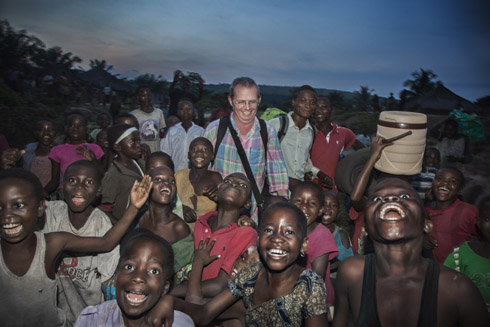
Brother Richard's final vows were celebrated on March 18, 2007. It was a great day in the Community's life, as it was also the twenty-fifth anniversary of their presence in Kabinda. Priests and Community members from other African houses and from France came to Kabinda to be present at this extraordinary event when two final vows and two robings took place on the same day.
Brother Richard's letters:
Richard's letter to his colleagues at Tatabánya



